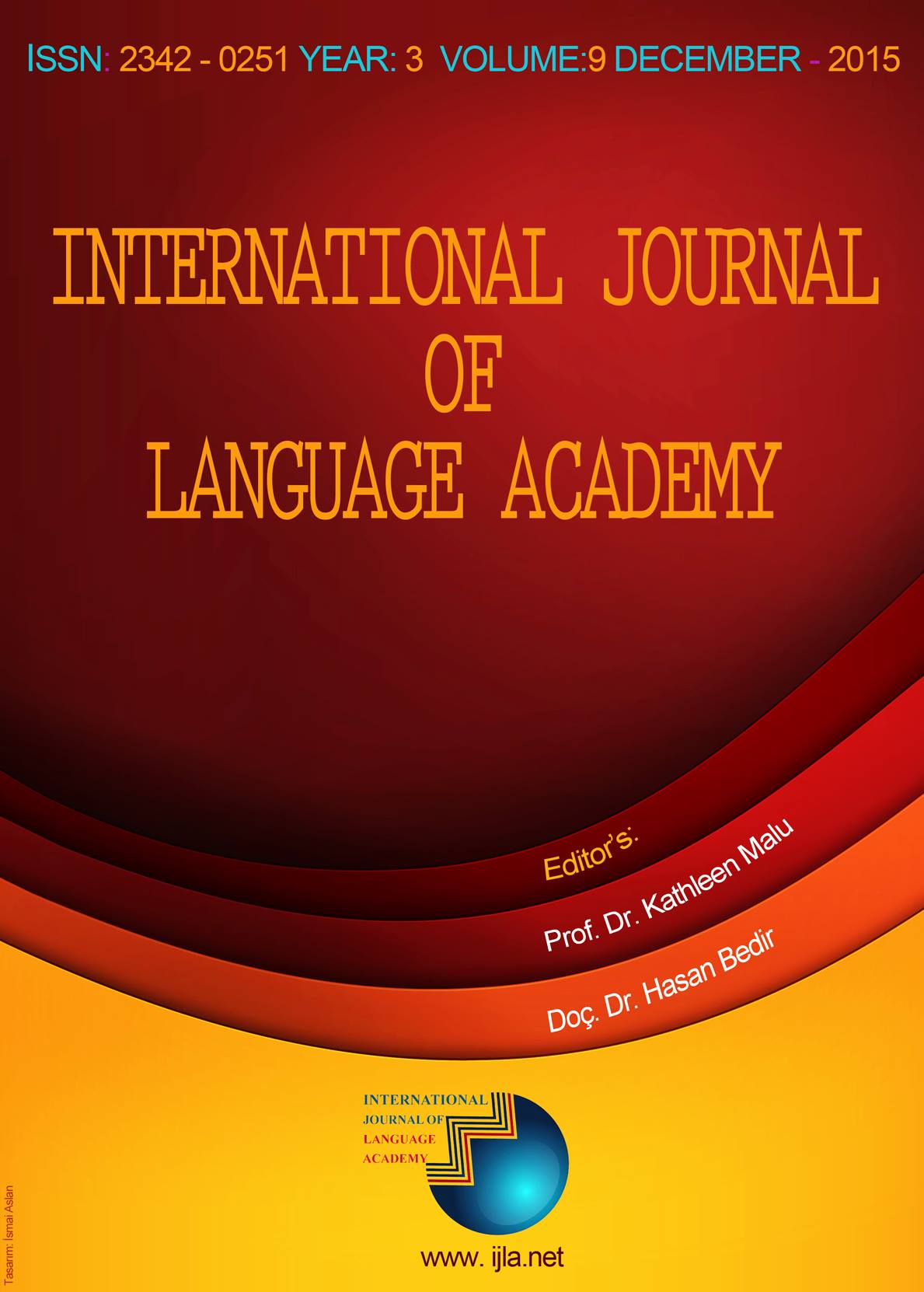Author :
Abstract
Stratejiler, bir problem ya da bir göreve yönelik belirli yaklaşım metotları; belirli bir sonuca erişebilmek için hareket yöntemi; belirli bilgiyi kontrol ve manipüle etmek için planlanmış dizaynlardır. Zamandan zamana, bir durumdan diğerine, hatta bir kültürden diğer bir kültüre farklılık gösterebilecek bağlamlandırılmış “savaş planları”dır. Stratejiler bireysel farklılık gösterirler (Brown, 2000,p.119). Gerçek başarının anahtarı olarak “öğrenen” ele alındığında, öğrenme sürecinin içerisinde öğrenme stratejileri vazgeçilmezdir. Rubin (1987,p.15), dil öğrenme sürecinde öğrenme stratejilerinin önemini vurgular: “ başka her şey eşit olsa, bazı öğrenciler ikinci ya da yabancı bir dili öğrenmede diğerlerinden daha başarılı olurlar. Öğrenme stratejileri literatürü, bu başarının bir bölümünün öğrenenlerin kullandığı bilişsel ve bilişötesi davranış setlerine bağlanabileceğini varsayar. Öğrenenler, öğrenme süreçlerinde stratejileri aktif bir şekilde kullandıklarında, öz-farkındalık geliştirirler ve otonom olmaya yönlenirler. Madem ki bu beceriler otonomiyi ve öğrencilerin öğrenmedeki öz-farkındalıklarını arttırmada etkindir, öyleyse neden bu becerileri geliştirmek için daha fazla yol aramayalım? Bu fikirden hareketle bu çalışma adım adım bir ders planı ve bu stratejileri kapsayan prosedür sunmaktadır.
Keywords
Abstract
Strategies are specific methods of approaching a problem or a task, modes of operation for achieving a particular end, planned designs for controlling and manipulating certain information. They are contextualized “battle plans” that might vary from moment to moment, or from one situation to another, or even from one culture to another. Strategies vary within an individual (Brown, 2000,p.119). Taking “learner” as the key to real success, learning strategies are indispensable within the learning process. Rubin (1987,p.15), emphasises the importance of learning strategies in the language learning process as: “all other things being equal, some students will be more successful than others in learning a second or foreign language. The learning strategy literature assumes that some of this success can be attributed to particular sets of cognitive and metacognitive behaviours which learners engage in. As learners are actively engaged in their process of learning using the strategies, they develop self-awareness and are led to the direct way towards autonomy. Now that these skills being effective in enhancing autonomy and self-awareness of the students in learning, then why not find more ways to develop these skills? Having this in mind, this study provides a step by step lesson plan and procedure covering these strategies.
Keywords
- Brown, D. H. (2000). Principles of language learning and teaching. New York: Pearson Education Company.
- Cook, V. (1996). Second Language Learning and Language Teaching (Second Edition). New York: Hodder Headline Group.
- Ercan, E. E. (2009). Teaching vocabulary through cooperative learning. MA Thesis. Konya: Selcuk University.
- Kagan; S. (1994). Cooperative learning. Resources for Teachers, Inc.
- Nunan, D. (1995). Language Teaching Methodology. Great Britain: Redwood Books.
- O’ Malley, J. M. & Chamot, A. U. (1990). Learning Strategies in Second Language Acquisition. United States of America: Cambridge University Press.
- Rubin, J. (1987). Learner Strategies: Theoretical Assumptions, Research History and Typology. In A. L. Wenden & J. Rubin, (Ed.), Learner Strategies in Language Learning. Cambridge: Prentice Hall International.
- Şahin, İ. (2005). The Role of Metacognitive Strategies in Promoting Learner Autonomy: A Case At The ELT Department, Gazi University.MA Thesis. Ankara: Gazi Üniversitesi
- Wenden, A. L. (1987). Conceptual Background and Utility. In Learner Strategies in Language Learning. A.L. Wenden and J. Rubin (eds.) London: Prentice Hall Int: 313.





